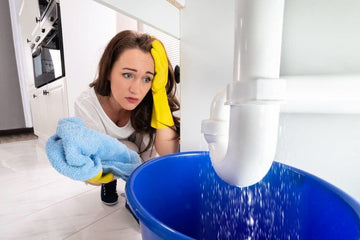In the ever-evolving landscape of industry quality assurance, the importance of precision and efficiency cannot be underestimated. One of the unsung heroes in this domain is the inline water sensor. Within just a few paragraphs, we will explore the undeniable significance of these sensors and the impact they have on industry QA.
An inline water sensor is a crucial component in numerous industrial processes, providing real-time monitoring of water quality, flow, and potential contaminants. These sensors are designed to be integrated seamlessly into pipelines, allowing for continuous monitoring without disrupting the flow of operations. This non-intrusive approach is pivotal for industries where continuous production and quality maintenance are paramount.

Inline Water Sensor and Its Importance in Quality Assurance
The utility of an inline water sensor lies in its ability to detect anomalies in water conditions instantaneously. When these anomalies are detected early, industries avert potential product contamination, save on costs related to waste, and ensure compliance with regulatory standards. This results in not only financial benefits but also enhances the company's reputation for reliability.
Monitoring Water Quality with Precision
Precision is key in Industry QA. Monitoring water quality using inline sensors allows companies to uphold the integrity of their processes. Whether it is ensuring that the water used in food processing is free from harmful contaminants, or maintaining the correct chemical balance in pharmaceuticals, inline water sensors are indispensable.
[The benefits of home smart water leak detectors](https://www.springwellwater.com/benefits-home-smart-water-leak-detectors) exemplify this precision, providing both enterprises and homeowners with peace of mind.
Prevention of Leaks and Water Waste
Another pivotal role that inline water sensors play is the prevention of leaks and water waste. In large factories, even minor leaks can lead to significant resource and financial losses. Advanced sensors can detect minute changes in water pressure and flow, prompting early interventions. For an in-depth discussion on leak prevention, [check out our insights on factory pipe leak monitoring](https://dripx.io/blogs/our-insights/factory-pipe-leak-monitor).
Technological Advancements in Inline Water Sensors
Technology in water sensors has advanced tremendously. Modern sensors incorporate wireless technologies, AI, and IoT capabilities, making them more efficient and easier to integrate into existing systems. The real-time data analytics capabilities of these sensors are a game-changer in Industry QA.
For a review of cutting-edge smart leak detection systems, [explore this detailed guide](https://www.travelers.com/resources/home/smart-home/4-smart-home-leak-detection-devices-to-help-avoid-water-damage).
Seamless Integration and Cost Efficiency
One of the remarkable features of modern inline water sensors is their ability to seamlessly integrate with complex industrial systems. This integration minimizes downtime and maximizes efficiency. The return on investment is significant, making it an attractive option for industries aiming to enhance their QA processes without inflated budgets. An interesting read on how smart pipe leak detection can facilitate such integrations can be found [here](https://dripx.io/blogs/our-insights/smart-pipe-leak-detection).

How Inline Water Sensors Can Drive Sustainability
Sustainability is becoming a critical concern for industries worldwide. By employing inline water sensors, industries can drastically reduce their water consumption and lower their carbon footprint. This aligns with global sustainability goals and demonstrates a commitment to environmental responsibility, which is becoming increasingly important for consumers and regulators alike.
Explore [enterprise leak detection solutions](https://dripx.io/blogs/our-insights/enterprise-leak-detection-solutions) to discover how industries are adapting to more sustainable practices.
FAQs about Inline Water Sensors in Industry QA
What are inline water sensors?
An inline water sensor is a device used to monitor water quality, flow, and conditions in real-time within industrial pipelines.
How do inline water sensors contribute to quality assurance?
They help in early detection of water quality issues, preventing potential product contamination and ensuring compliance with industry standards.
Can inline water sensors integrate with existing industrial systems?
Yes, modern sensors are designed for easy integration, minimizing disruption and enhancing efficiency.






